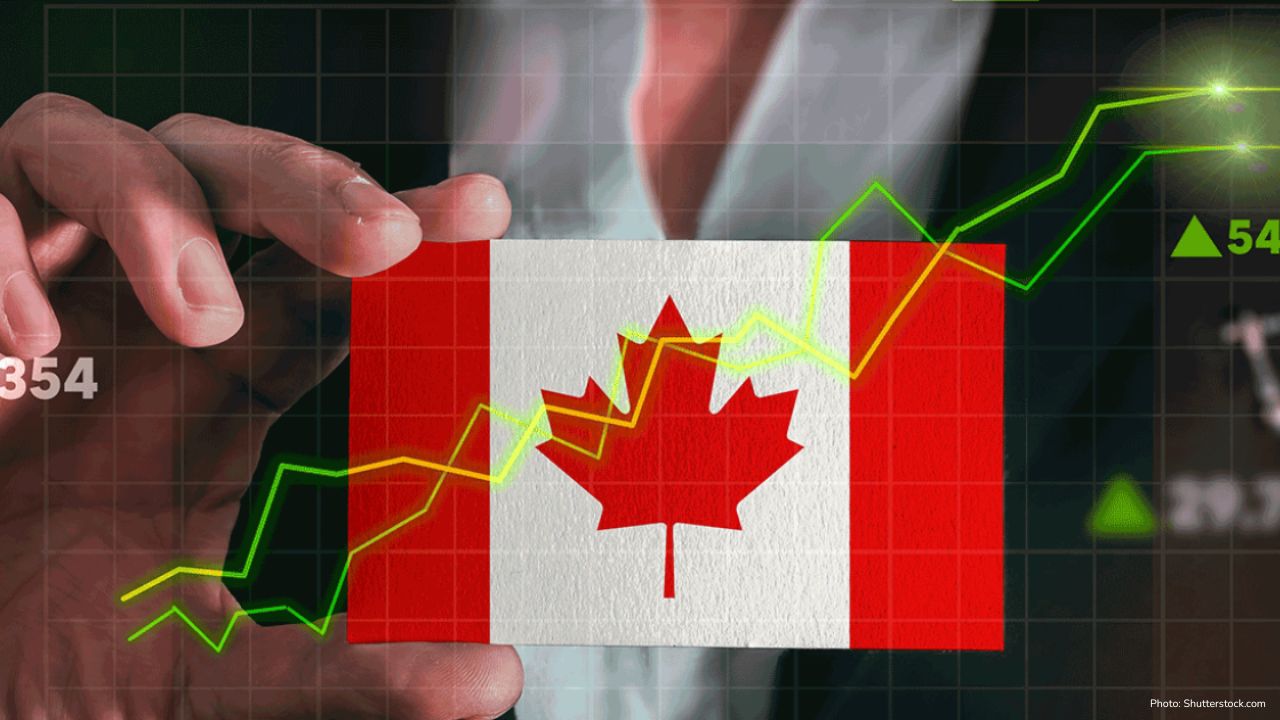
Mardaani 3 Trailer Revealed: Rani Mukerji Takes on
Rani Mukerji returns as ACP Shivani in Mardaani 3, battling a ruthless child-trafficking ring in thi

Canada in 2025 is standing at a turning point. The economy is showing strong progress in some areas, but at the same time, millions of families are struggling with daily costs. This mix of growth and pressure makes the current moment very important for both leaders and citizens.
The goal of this editorial is to look closely at where Canada’s economy is growing, what problems people are facing, and what steps are needed for the future.
Growth That Brings Hope
Even with world problems, Canada has shown that it can stay strong. The economy is not perfect, but there are bright spots that give people hope.
Technology and Innovation
Canada has become an important place for technology and new ideas.
Cities like Toronto, Vancouver, and Montreal are leading in artificial intelligence (AI) and software.
Many new companies are opening, and foreign investors are putting money into Canadian businesses.
These changes are giving young people more chances to get high-paying jobs.
Green Energy
Canada is also moving towards clean energy.
The government is spending money on wind, solar, and hydro projects.
This helps Canada fight climate change and also creates jobs in construction and research.
If Canada continues on this path, it can become a leader in green technology worldwide.
Natural Resources and Exports
Oil, gas, and minerals are still very important for Canada.
Expose
Minerals like lithium, which are used in electric cars, are becoming more valuable.
This makes Canada’s resource sector very important for the global economy.
Immigration and Workforce
Canada is welcoming skilled immigrants who fill jobs in health, IT, and construction.
New workers are helping to keep the job market active.
Immigration is also supporting an ageing Canadian population.
Problems That Canadians Cannot Ignore
For all the positive news, life for many Canadians is still difficult. The main problems are high costs, expensive homes, and higher interest rates.
Prices for food, fuel, and daily goods are much higher than before.
Families are spending more of their income on basic needs.
Even though inflation is slower than last year, people still feel the pressure in daily life.
Housing Crisis
The housing market is one of the biggest national issues.
In cities like Vancouver and Toronto, buying a home is impossible for most young people.
Rent has gone up sharply, leaving families with less money for other needs.
The lack of affordable housing is creating stress across the country.
Interest Rates
To control inflation, the Bank of Canada has raised interest rates.
This makes loans and mortgages more expensive.
Small businesses find it hard to borrow money for growth.
Families with variable-rate mortgages are paying hundreds more every month.
Uneven Growth in Provinces
Not all provinces are doing the same.
Alberta and Saskatchewan benefit from oil and gas.
Ontario and British Columbia are strong in tech but suffer from housing costs.
Eastern provinces still face job losses and weak growth.
The Job Market: A Mixed Picture
The job market in 2025 shows both hope and worry.
Strong Sectors: Healthcare, IT, renewable energy, and skilled trades are hiring.
Weak Sectors: Retail and tourism are still not back to full strength.
Unemployment: Around 6% across Canada, but lower in stronger provinces.
For young people and newcomers, jobs exist, but the cost of living makes saving money very hard.
Global Pressures Canada Cannot Avoid
Canada’s economy is also shaped by the rest of the world.
United States: Canada’s biggest trade partner. Any policy change in Washington affects Canadian exports.
Asia: Countries like China and India are big buyers of Canadian goods. But trade disputes sometimes create problems.
Energy Prices: Global oil prices decide how much revenue Canada earns. High prices bring income but also raise costs for Canadian families.
Climate Change: Extreme weather impacts farming, insurance, and rebuilding costs. Canada must prepare for these risks.
What the Government Must Do
The role of government is very important in this moment. Canada cannot only depend on natural resources; it must also build a fair economy for all citizens.
Affordable Housing – More homes must be built, and rent controls may be needed in big cities.
Healthcare Support – A growing population needs more doctors, hospitals, and nurses.
Green Technology – Continued investment in renewable energy will help Canada stay ahead.
Support for Small Business – Tax relief and grants can help small companies survive high borrowing costs.
Looking Ahead: Hope with Caution
The next few years will decide whether Canada’s economy grows stronger or falls into more struggle.
If inflation slows and interest rates drop, families will feel relief.
If housing supply increases, young Canadians will have a chance at home ownership.
If clean energy and technology grow, Canada can become a leader in the new world economy.
If global trade stays stable, Canadian exports will remain strong.
But risks remain. If costs stay high or if the global economy weakens, Canada could face a slowdown.
Editorial View
At CNInews, we believe Canada has both the talent and resources to build a better future. But growth alone is not enough. Policies must focus on making life affordable for all Canadians. Without addressing housing, inflation, and fair wages, economic success will not be felt in daily life.
Canada’s leaders must take bold action now. The strength of the country lies not only in numbers and exports but also in the well-being of its people.